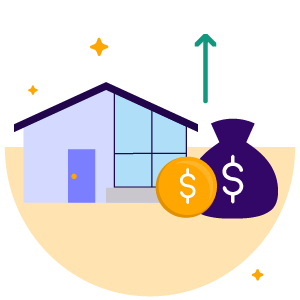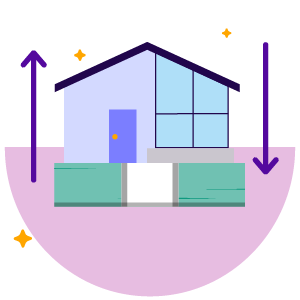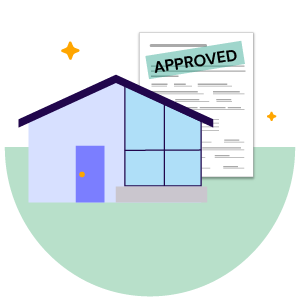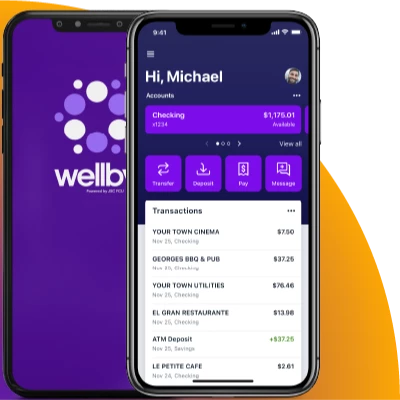February 6, 2025 | by Brian Truong

4 Key Factors That Will Impact Your Mortgage During the First Two Years
November 16, 2023
By Brian Truong
When you buy a home, planning your finances before and after the purchase is one of the most important steps to consider. No doubt, you have thought carefully about the cost of a mortgage, property tax, and insurance when calculating your monthly budget as a homeowner. You have weighed these costs against your income and will, ideally, choose a home that leaves you a comfortable margin for living costs, and you have looked up common mortgage terms. However, it's also important to understand that the costs of homeownership are sometimes subject to change. In fact, you will likely see changes within the first two years due to some common dynamics in mortgage and home purchasing procedures.
At Wellby, we are invested in helping families thrive financially, and the best way to do that is through preparation. We don’t want you to be caught off-guard by rising housing costs. The following four examples are ways that your mortgage can change, by either increasing or decreasing, in the first two years so you can prepare your budgets accordingly.
How Mortgage Escrow Works with Property Tax
As part of investing in your home purchase, your lender wants to ensure that property taxes are paid. To facilitate this, lenders often add an 'escrow arrangement' to the mortgage structure. In this system, homeowners pay a small addition to monthly mortgage payments, which goes into an escrow fund dedicated to paying property taxes - and sometimes homeowner's insurance. Many of the changes you may experience during your first two years of owning a new home revolve around your taxes as property taxes can change over time. This can result in your mortgage payments changing slightly depending on differences in your property tax from year to year.
1) Tax Changes for New Construction Homes
New construction homes are an unknown quantity in the housing market. Property taxes are typically determined by market value, but new construction homes don’t yet have a market value assigned.  Instead, the initial property tax of a new construction home is usually based on the price of land and home construction. After that first year or two, however, the home may be properly appraised and a general market value assigned. Depending on the home’s size, quality, and other home values in the neighborhood, your new construction home may be assessed to be of higher value than the original property tax rate accounted for.
Instead, the initial property tax of a new construction home is usually based on the price of land and home construction. After that first year or two, however, the home may be properly appraised and a general market value assigned. Depending on the home’s size, quality, and other home values in the neighborhood, your new construction home may be assessed to be of higher value than the original property tax rate accounted for.
If this happens, your property taxes can go up. If your property taxes go up and your mortgage operates an escrow payment system, you’ll need to put aside slightly more each month to pay the taxes. Because your property taxes are being added to requested mortgage payments, increased taxes can result in higher mortgage payments than you expected. While the amount of interest and principal being paid are the same, your escrow amount will have increased.
2) Typical Property Tax Fluctuations
 Even if you have a home that is not new construction, it’s important to be prepared for occasional property tax fluctuations. Each year, your lender will estimate the amount of property tax you’ll need to pay and then adjust your escrow portion of mortgage payments to cover this amount. However, property tax reassessments throughout the year can change that amount to be more, or sometimes less, than the estimated amount set aside by your lender. If property taxes are higher than estimated at the end of the year, your lender may ask you to cover the difference alongside a mortgage payment. However, if property taxes have dropped due to housing market changes, there will be a little money left over in the escrow account. In this case, you can typically choose to request this amount as a refund or keep the money in the escrow to cover part of next year's property taxes - thus slightly lowering your escrow mortgage amount next year.
Even if you have a home that is not new construction, it’s important to be prepared for occasional property tax fluctuations. Each year, your lender will estimate the amount of property tax you’ll need to pay and then adjust your escrow portion of mortgage payments to cover this amount. However, property tax reassessments throughout the year can change that amount to be more, or sometimes less, than the estimated amount set aside by your lender. If property taxes are higher than estimated at the end of the year, your lender may ask you to cover the difference alongside a mortgage payment. However, if property taxes have dropped due to housing market changes, there will be a little money left over in the escrow account. In this case, you can typically choose to request this amount as a refund or keep the money in the escrow to cover part of next year's property taxes - thus slightly lowering your escrow mortgage amount next year.
3) Homesteading Your Property
 A homestead, legally, is a free-standing home that is a person or family's primary residence. Any home can be declared a homestead, which can adapt the taxing laws that the home is subject to. By homesteading your property, you become eligible for tax reductions on your property taxes the year after filing. This can mean lower payments into your escrow accounts if you’re approved after filing. Homes owned by businesses, second homes, and rental homes are not eligible as homesteads. You can apply for your single-family home to be declared a homestead as soon as you and your family move in to make the house your primary residence. This will make you eligible for the Homestead Tax Exemption in the next taxation cycle and beyond. The homestead exception varies by state law. It can be calculated as a flat-dollar savings deducted from your property taxes to reduce your property tax by a set percentage of the estimated value. Either way, you can pay less for property taxes just by applying to qualify for the exemption.
A homestead, legally, is a free-standing home that is a person or family's primary residence. Any home can be declared a homestead, which can adapt the taxing laws that the home is subject to. By homesteading your property, you become eligible for tax reductions on your property taxes the year after filing. This can mean lower payments into your escrow accounts if you’re approved after filing. Homes owned by businesses, second homes, and rental homes are not eligible as homesteads. You can apply for your single-family home to be declared a homestead as soon as you and your family move in to make the house your primary residence. This will make you eligible for the Homestead Tax Exemption in the next taxation cycle and beyond. The homestead exception varies by state law. It can be calculated as a flat-dollar savings deducted from your property taxes to reduce your property tax by a set percentage of the estimated value. Either way, you can pay less for property taxes just by applying to qualify for the exemption.
4) Changes to Homeowner's Insurance and Mortgage Insurance
Another item that can affect your monthly payments is fluctuations in your homeowner’s insurance or mortgage insurance. Oftentimes, you’ll pay your insurance out of the escrow fund, so any changes to your insurance rates will also influence your overall mortgage payment amounts each month. Your mortgage insurance, or PMI (Private Mortgage Insurance) is a special type of insurance that protects the lender from defaulted loans. However, you only need to pay PMI until your equity is up to 20%. The cost for PMI is incorporated with your mortgage payments. If the cost changes, or if you complete your PMI requirement with 20+% equity, that cost will change or disappear. Homeowner's insurance is the policy taken to protect your home from disaster damage and potential liability. Lenders like to take care of insurance payments to ensure they are paid. However, insurance policy costs can change overnight, and sometimes without warning. If your rates or coverage change, your lender will need to make escrow irregularities right with you, the client. Coverage costs can fluctuate, and how firmly monthly payment for this coverage will be based on needs, coverage options, claims, etc. These coverage costs can change, and it's important to evaluate your insurance cost each year, or at the end of your contract, and determine if your current insurance provider is still the best and most affordable option to meet your needs, and changing insurance providers as needed.
Why Mortgage Prices Change in the First Years of Homeownership
 You are a savvy homeowner or home buyer ready to carefully balance your income and mortgage payments. It would be nice if the amount was exactly the same each time, but changes in your mortgage payments as market/neighborhood conditions change, as well. If your lender is managing an escrow account for property taxes and insurance payments, then your mortgage exact payment amount per month may adapt with changing property tax rates and insurance costs.
You are a savvy homeowner or home buyer ready to carefully balance your income and mortgage payments. It would be nice if the amount was exactly the same each time, but changes in your mortgage payments as market/neighborhood conditions change, as well. If your lender is managing an escrow account for property taxes and insurance payments, then your mortgage exact payment amount per month may adapt with changing property tax rates and insurance costs.
Prepare For the Complexities of Owning a Home
Becoming a homeowner is a proud moment, one that you should celebrate as you unpack. However, those costs you carefully calculated may be subject to change as a property values are reassessed. Remember that your mortgage payments are made up of multiple pieces. While your interest and principle will likely remain the same, the amount that goes into your escrow fund for property tax and insurance costs may change the total amount requested for each mortgage payment. This makes it practical to maintain a small nest egg - good strategy for anyone, not just homeowners - to act as a buffer should costs fluctuate or an estimate is lower than the cost as a homeowner.
Related Topics
Brian Truong was born in Canada (cool, eh?) and grew up in Sugar Land, Texas. Brian has over 12 years of SEO and marketing experience in a wide array of industries, including finance and real estate. When he’s not flexing his SEO and web development superpowers, he enjoys video games, anime, horror movies, and spending time with his cat, Chi.
Related articles you might like
December 23, 2024 | by Brian Truong
Budgeting 101: Comparing Fixed and Variable Costs
December 12, 2024 | by Brian Truong






